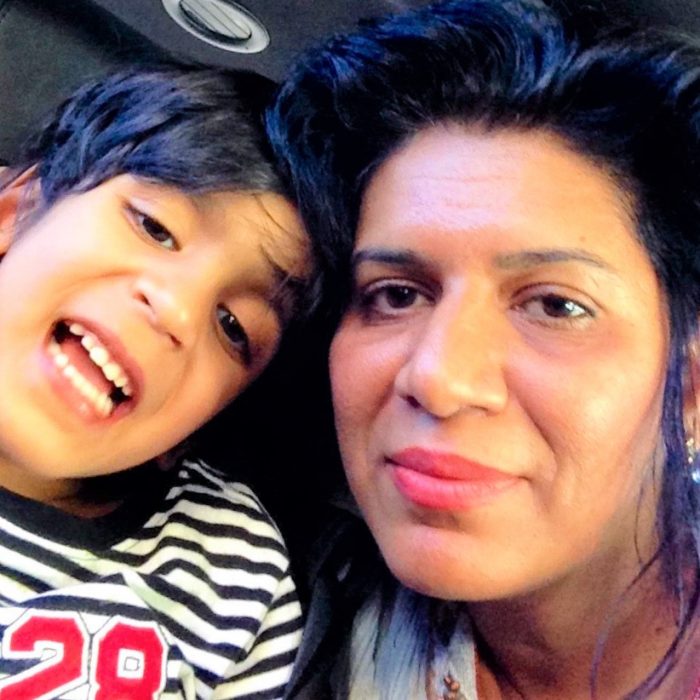I am a parent. Those four words should be enough as an introduction.
But wait, I have something to add to my presentation. I am a special needs parent. Now my submission is complete.
Flashback to about 12 years ago, when I came to learn about my first pregnancy, the only thought that crossed my mind was, “Oh shucks, I will not be able to sleep now.”
What I did not know was that babies do not come with instructions. One’s life does take a 180-degree turn, and there is a real risk of turning into a zombie overtaken by an eight-pound feed, poop, change, and repeat human.
Ah, the silliness of not knowing.
With the amazement of what a mother’s body can do—from conception to delivery to post-delivery—I loved my baby in the first seconds I locked my gaze with his. The pain of recovery from childbirth, feeding, being awake, and changing diapers in the night was to follow, and I could not believe what had happened to me and my body. But the real beauty was in the bond that had begun in the womb, and became more beautiful and unbreakable the moment I met my son.
The second time around, I had an idea of what to expect in terms of pregnancy and childbirth. This time, I did not ask my doctor if the baby could stay inside, just so I didn’t have to deliver and could escape the pains of childbirth (hello epidural!).
But, the universe wanted to up my game, and this baby was to turn my life upside down in more ways than I could have imagined at that time.
A mother’s intuition is always correct when it comes to her children.
My finger-sucking second-born, with his big brown eyes and a smile, was always content. I started to observe that he was in his world, but he did not respond to his name, and was oblivious of where he was and who was holding him. He was not uttering a word and was nearing 18 months old. No other milestones delayed, and with regular wellness checkups with the pediatrician, the speech was the only concern. I started to take my son for private speech therapy sessions, hoping he would begin talking magically.
Something was still amiss, and I started researching and came upon the word autism. With a pit in my stomach and a lump in my throat, I kept reading those early signs of autism articles over and over again. My heart said no, but my mind said yes—it was a concern not to be dismissed.
After a long wait to reach specialists and other evaluations with the school district, my son now had a formal diagnosis at the age of three years and a few months: autism. I also learned that this affects 1 in 59 children in the U.S.
However, this was just the beginning. I was headed straight into the eye of the storm.
The challenges that came were enormous, and finding resources, setting up a team of therapists, specialists, and teachers felt like moving mountains. Suddenly, the trials with the firstborn seemed like a walk in the park.
Being a parent is hard enough, but being a special needs working parent was like dialing the notch up a thousand times.
I grieved and questioned myself—did I do something wrong during pregnancy that affected him? Did the emergency C-section have something to do with his diagnosis, or was it those double chocolate Oreos that I craved and ate throughout the pregnancy? I cried when I saw children going to preschool, while I was told politely that my son did not fit there. I cried while observing a class for special needs children; all the children were so beautiful, innocently unaware of a typical world that existed outside the window of that class. I cried as the realization set in that my son would probably never attend a typical school or play in the park or do anything much with my elder son. From innocent questions by little children as to why my son did not play and talk with them, to comments and unwelcomed looks that my son was a “weirdo,” I tackled, in the best possible manner as I could, to explain stimming.
Intentional and unintentional words can do the work of a dagger at times.
A visit to a specialist forced me to snap out of my grief. A nameless doctor decided and announced that my son would not amount to anything and maybe never talk in his life. I thanked him, muttered “f*ck you,” and recognized that my son needed me, and I was the only one to help and advocate for him.
Here I want to share some of what I’ve learned as a special needs parent. I hope these will benefit parents who are going through this experience:
1. A sense of loss is natural upon hearing the diagnosis. The diagnosis equates to the loss of what one had known and expected for a child, and our expectations of being of a certain kind of parent. The grief is inevitable. What is essential here is to recognize that we have to process this sense of loss because, as a parent, if I did not, there is no one else to help and advocate for him as I do.
2. The tribulations will eat up every ounce of energy in a parent. I spent endless hours researching solutions, meeting other parents, and being part of forums to understand what I was dealing with in the beginning. Unfortunately, since there is no specific root cause identified for autism, there is no cure either. At the same time, please be wary of any treatment that announces, “We cure autism.” Research, research, and research.
3. The waits are long for specialists and therapists, and insurance plays by its own rules. No matter how frustrating the process, don’t lose hope. An excellent team will be helpful as your child develops and grows up.
4. I am lucky to have found a school district where my child is finally flourishing. There was a time when I was called into school every day at noon to pick up my son because of his meltdowns and behavior problems due to being non-verbal. I had to fight for accommodations with the school. But, in the end, when I moved to my present residence, the teachers thanked me for being a foresighted mother. Thus, never be shy to advocate, but always with the utmost respect for the work teachers put in for your child.
5. Don’t read too much into what I call “the label” of autism. As a parent, one’s love for the child does not diminish by even one iota because a child is on the autism spectrum. Focus only on the child as an individual.
6. Undoubtedly, the child may not be on par with others his age and may well be behind, but celebrate every small achievement. What others may take for granted does not come easy for my son. It may be something as little as holding a pencil.
7. Autism may not be the sole diagnosis. My son had severe gut issues, which added another specialist to the team. Patience, education, and tiring efforts become one’s best friends. On the way, share what you learn with other parents in a similar situation.
8. Wonder how one keeps up with a job? One doesn’t. My professional life took a hit after so many years of working. My performance was at the lowest point, and I was driving myself toward a nervous breakdown by tending to my son’s needs and working full-time. Something had to give. For me, it was my job. My sincere recommendation is to avail leave benefits, inform HR, or work part-time—a personal decision according to your own situation.
9. Relationships suffer. Period. A trying time like this is the one that will show who supports you—be it friends, relatives, or sometimes the other partner. I am thankful, even for those relationships that ended with life lessons of forgiveness and moving forward. I never looked back.
10. One always gets the advice, “take care of yourself” or “make time for yourself.” While this is vital at so many levels, there were days when I did not even get five minutes to take a shower. If one has no immediate support, avail state-funded respite care or hire help, even for one night a month to recover.
11. Some disabilities are invisible. Some people choose to be non-empathetic. Don’t be intimidated by judgments and looks from others. I was yelled at in a grocery store and asked to control my child. I left a full grocery cart and picked up my son to go cry in the car. I am thankful for this incident as it taught me to take out my son in public with a resolve. I choose to focus on sensory issues and understand my son has to live in this world after me.
12. I hope for the best, but plan for the worst regarding finances. Plan and talk to a special needs attorney for ABLE accounts, government benefits, special needs trusts, and other plans that may be beneficial to the child as an adult.
13. As we tread on this path, the three pillars of inclusion, acceptance, and awareness are essential to children’s well-being as they grow into adults. We have miles to go in this direction. Let’s travel together on this road.
I have heard that children choose their womb. If this is true, then I am in gratitude to my children for choosing me as their mother. I have learned from you, and I may teach you some survival skills, but other than that, you are my teacher.
To my specially—determined child, I will always believe in you and love you. I know you’ve got this!









Read 28 comments and reply